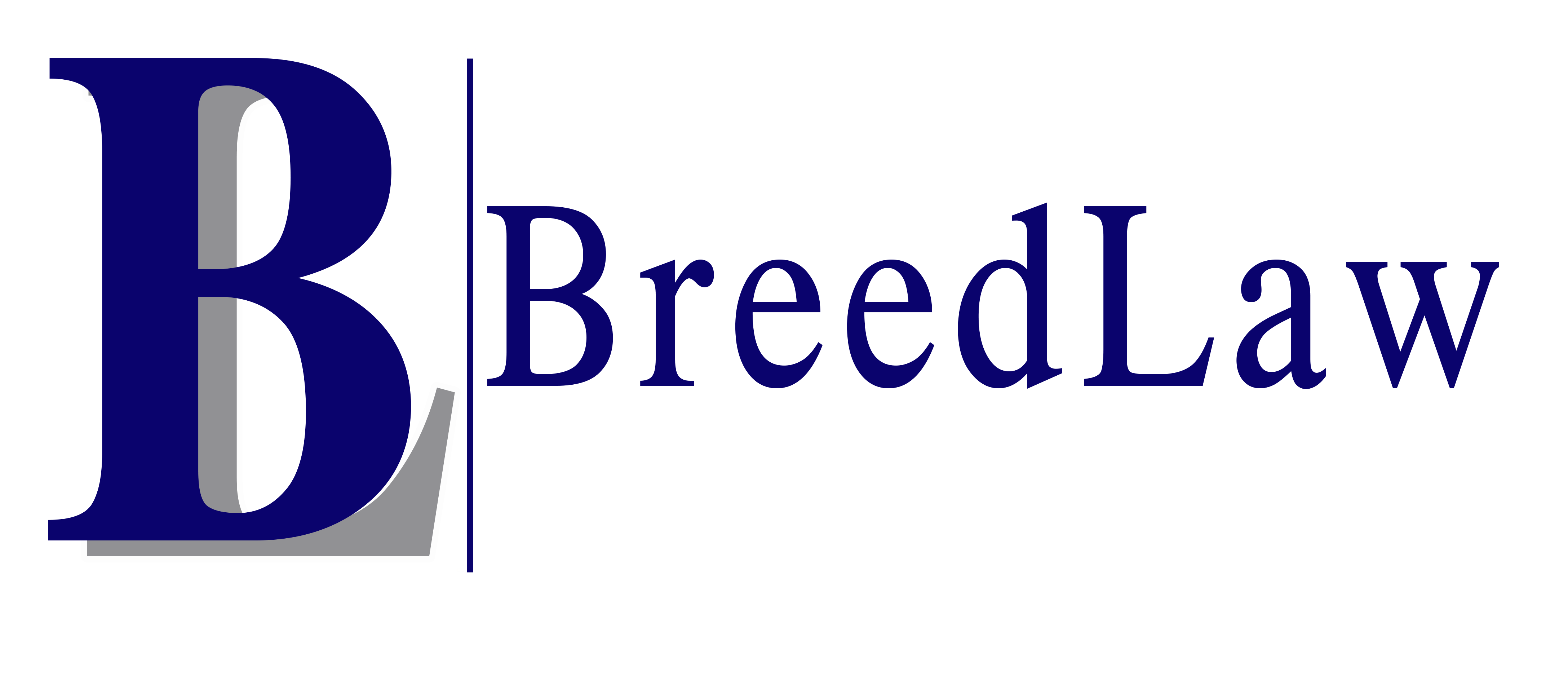BREED LAWFiduciary Accounting/Taxes
Accepting the appointment as an executor of an estate or trustee of a trust is a significant responsibility that should not be taken lightly. That person must act in a fiduciary capacity and has the responsibility to account for all the financial assets, income and expenses of the estate or trust – a job that can be burdensome and time-consuming. Without a thorough understanding of accounting and tax principles, an executor or trustee may quickly become overwhelmed and unable to serve effectively. With our many years of experience serving as a fiduciary and working with fiduciaries, we can remove the onus placed on an executor or trustee and ensure that person is complying with all legal and ethical obligations.
What is the financial and fiduciary responsibility of an executor or trustee?
Tracking and monitoring the assets of an estate or trust is their primary responsibility. As any type of asset can be part of an estate or trust, the fiduciary needs to be familiar with how that asset is maintained, tracked and managed. The fiduciary’s duty is owed to the beneficiaries of the estate or trust. Thus, greater transparency and communication with the beneficiaries will significantly decrease the likelihood of being criticized or possibly sued for mismanagement of the assets. Preparing sensible financial reports on a regular basis which track income, expenses, asset values and investment performance, and distributing those reports to all interested parties, keeps everyone informed and brings to light any issues early in the administration process.
Preparing the fiduciary federal and state income tax returns (federal form known as Form 1041) and inheritance tax returns (if applicable) is another important duty of the executor or trustee. This is not done by simply inputting data into a computer-based tax program. Rather, the fiduciary will need to do research and obtain information to determine cost basis, calculate capital gains and losses, properly allocate income vs. principal when distributions are made and implement strategies to minimize the tax consequences to the estate or trust and beneficiary. It is important to know the filing deadlines and extensions available for the various returns to avoid interest and penalties.
Preparing a detailed and comprehensive accounting, whether informal (for the beneficiaries) or formal (for the court) is especially beneficial to the executor or trustee in the administration process. Such accountings should always be done when the estate or trust is being wound down and closed; however, they are also prepared during the midst of an estate or trust administration as well – often when a large interim distribution is being made. Since each beneficiary must consent to the closing of the estate or trust, preparing a comprehensive accounting protects the fiduciary by eliminating any financial questions about how the estate or trust assets were handled during the fiduciary’s stewardship. All-in-all, these reports can be a fiduciary’s best friend.
After all the taxes and expenses are paid, the estate or trust can distribute the assets among the beneficiaries. The important task of calculating and apportioning the assets to be distributed among the beneficiaries falls on the shoulders of the fiduciary as well. This is a series of calculations within calculations as the person will need to calculate the allocable distribution amounts among beneficiaries, which includes allocation of expenses and income and determining the distributive shares, and also consider whether a beneficiary (such as a charity) is exempt from paying any of the estate’s or trust’s expenses or taxes. When everything is finalized, in tandem with the accounting discussed above, it is good practice for the fiduciary to send each beneficiary a final receipt and release which acts as acceptance of the distribution being made while protecting the fiduciary from liability from that beneficiary.
The time and expense to prepare such accountings is dependent on a number of factors, including the number and type of assets, number of years for which need to be accounted and whether the estate or trust is being contested. If you have accepted, or are considering accepting, such role and would like a better understanding of your responsibilities and this process, please contact us today to arrange a free initial consultation. Our staff of attorneys and paralegals can guide you through the process and are equipped to assist with all accounting matters, simple and complex, with an outstanding attention to detail. We have offices in mid-town Manhattan and Wayne, PA and will make every effort to accommodate your needs and help you accomplish your goals.
A: Yes. The heirs and various tax authorities (State and Federal) will need to verify the contents of the estate and when and how it was disposed.
A: A Federal estate tax return must be filed within 9 months of the person’s date of death; however, there is an automatic 6-month extension so long as it is requested before the due date. New Jersey and Pennsylvania do not have an estate tax; however, New York’s due date is also within 9 months of the date of death.
A: The first step is to try and get the excessive distribution back. If it is not a final distribution, then an adjustment can be made before the final distribution is made. If all else fails, it will be necessary to seek court involvement. Because of potential fees or taxes which will be owed at the end, it is always prudent to leave a small reserve to pay such expenses.
